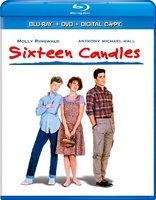Sixteen Candles Blu-ray Movie
HomeSixteen Candles Blu-ray Movie 
Universal 100th Anniversary / Blu-ray + DVD + Digital CopyUniversal Studios | 1984 | 93 min | Rated PG | Aug 28, 2012
Movie rating
7.2 | / 10 |
Blu-ray rating
| Users | 3.8 | |
| Reviewer | 3.5 | |
| Overall | 3.8 |
Overview
Sixteen Candles (1984)
It's Samantha Baker's sweet sixteen birthday and no one in her family remembers the occasion. She's a typical teen, enduring creepy freshman, spoiled siblings, confused parents and the Big Blonde on campus who stands between her and the boy of her dreams.
Starring: Molly Ringwald, Justin Henry (I), Michael Schoeffling, Haviland Morris, Gedde WatanabeDirector: John Hughes
| Comedy | Uncertain |
| Romance | Uncertain |
| Teen | Uncertain |
| Coming of age | Uncertain |
| Drama | Uncertain |
Specifications
Video
Video codec: VC-1
Video resolution: 1080p
Aspect ratio: 1.85:1
Original aspect ratio: 1.85:1
Audio
English: DTS-HD Master Audio 5.1
French: DTS 2.0
Spanish: DTS 2.0
Subtitles
English SDH, French, Spanish
Discs
50GB Blu-ray Disc
Two-disc set (1 BD, 1 DVD)
Digital copy (as download)
DVD copy
BD-Live
Mobile features
Packaging
Slipcover in original pressing
Playback
Region free
Review
Rating summary
| Movie | 4.5 | |
| Video | 3.0 | |
| Audio | 3.5 | |
| Extras | 3.0 | |
| Overall | 3.5 |
Sixteen Candles Blu-ray Movie Review
Jake Ryan doesn't take no for an answer.
Reviewed by Brian Orndorf August 22, 2012For his directorial unveiling, John Hughes selected a piece of material held close to his heart; a screenplay that contained beloved topics: the chaos of the nuclear family and the humiliation/redemption of the average American teen. “Sixteen Candles” is largely Hughes testing his gifts behind the camera, inadvertently pioneering a genre that would come to define his career. It’s a rough sketch of future triumphs, but “Candles” is a brazenly mischievous, consistently uproarious comedy that christens the devastating Hughes-fu with vivacious results.
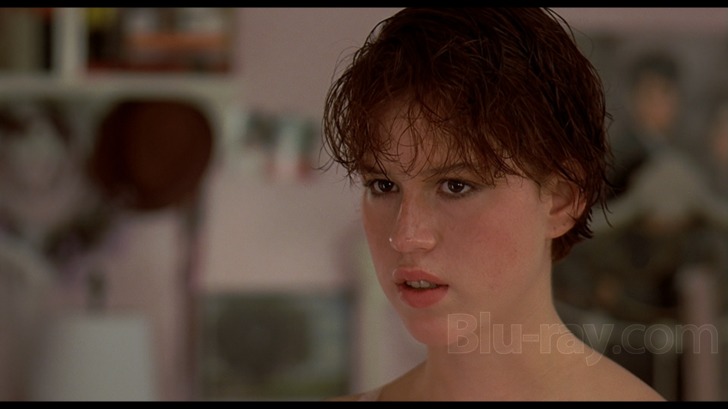
Samantha Baker (Molly Ringwald) has finally turned 16, with all the promise of pubescent growth that accompanies the landmark age, and nobody has noticed. With Samantha’s extended family trying to marry off her older sister (Blanche Baker), the lonely teen turns her attentions to school crush and popular stud Jake Ryan (Michael Schoeffling), who appears to return the romantic interest, much to her horror. Caught in the middle is geek Farmer Ted (Anthony Michael Hall), a freshman with designs on Samantha, but also fears the senior wrath of Jake. When the night brings a blow-out party, Farmer Ted and Jake join forces to locate Samantha, while the perturbed teen tries to make the most of a crucial birthday that no one bothered to celebrate.
Bringing a multi-flavored wit honed at the offices of the National Lampoon, and working off the success of his 1983 screenwriting effort, the incomparable “Vacation,” John Hughes accepted the offer of prestigious feature-film direction duties with utmost seriousness. Perhaps this is why “Sixteen Candles” has a certain fearlessness about it that could only emerge from a newcomer ready to please and unable to discern industry limits.
While hardly a revolutionary screenplay, “Candles” is nevertheless a work of unparalleled comic generosity, merging customary teen hijinks with a newfound sense of timing, character depth, and concentrated group effort. Hughes writes for the rafters, creating a barnstorming effort for his first film that mixes slapstick with truthful teen attitude, rather confidently introducing a sharp edge to the genre that brings the Clearasil crowd to light in a rewarding manner. Hughes refuses to entertain cliché, instead turning every character into a small cradle of authenticity, either in a directly comic fashion or through evocative adolescent impediment. “Sixteen Candles” brings on the laughs in impressive fashion, but Hughes cares about these characters as he brusquely shakes them down for laughs. It’s an intoxicating equilibrium the filmmaker would go on to explore to even greater satisfaction as the decade wore on.
Hughes’s eye for casting is also a miracle that produces a movie with atypical encouragement. As the central image of self-conscious, gawky teendom, Ringwald’s portrayal of Samantha’s superficial suffering during this high tide of romantic entanglements and prized breast development (or lack thereof) sets the gold standard for slack-jawed youthful performances. There’s never a moment where the audience doesn’t believe Samantha’s horror as her day goes from bad to worse. While a teen herself during filming, Ringwald conveys the ideal level of angst, facing down a family that’s ignored her, a love interest she can’t even talk to, and a geek who wants to rent her panties out to avoid paying off a hefty floppy disk wager. Ringwald sells the bejesus out of the role, and Hughes uses her pubescent discomfort to backdrop the film’s more robust sequences of indignity.
Truthfully, “Candles” is teeming with outstanding work from the entire troupe, with the possible exception of Schoeffling. Oh, I get the whole “dreamboat” attributes of the actor, but the character is a complete sleaze (casually chatting up how he could “violate” his inebriated girlfriend to Farmer Ted), and Schoeffling is visibly half-asleep during his performance. Mercifully, Hughes fills the rest of the cast out with amazingly game talent, from the infamous Chinese exchange student Long Duk Dong (an adorable Gedde Watanabe) to Samantha’s alternately over-protective and pervy grandparents (Billie Bird, Edward Andrews, Carole Cook, and Max Showalter), who run off with the film with the little screentime they’re permitted.
Of course, there’s Anthony Michael Hall as the Gandalf of the geeks, the lecherous Farmer Ted. If my black magic skills were up to snuff, I would plop Hall into a Ziploc bag at this pristine age and hold onto him forever. Certainly the actor found stronger roles with Hughes as time wore on, but he was never quite as fresh, convincingly clumsy, and as easily led as he was in “Candles.” Hall knocks every scene out of the park with his fluid timing and general embryonic appearance. He’s a memorable orthodontics-enhanced thorn for the film to abuse as Hughes sees fit.
Sixteen Candles Blu-ray Movie, Video Quality 
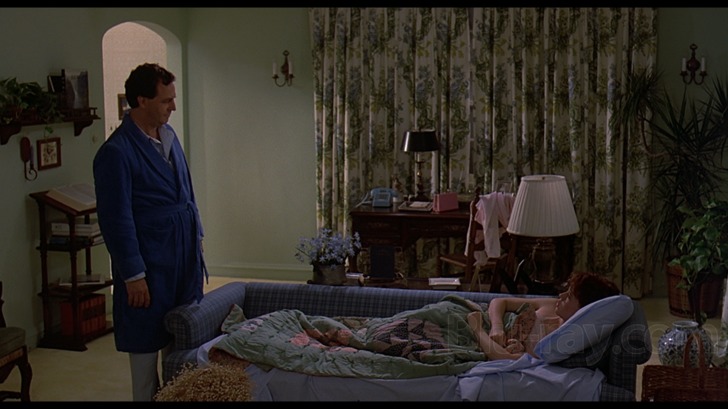
The VC-1 encoded image (1.85:1 aspect ratio) presentation comes with a heavy Universal catalog title burden. Suffering from a noticeably filtered look, grain has largely been lifted out of the picture, leaving a smoother viewing experience with moments of slight ringing and aliasing. Fine detail isn't nearly as strong as it could be, leaving close-ups less impactful, while costuming lacks deep textures. There are occasional crush issues that render distances and darker outfits on the solid side, with evening adventures clotting unnecessarily. The colorful palette feels slightly dulled, though fabrics do manage to retain their natural vibrancy, while locations offer appropriately festive hues, showing stability. Skintones look on the bloodless side, though Ringwald's natural strawberry pop remains. The print shows only minor wear and tear. The BD isn't perfect, but what's here is definitely an upgrade over previous DVD presentations.
Sixteen Candles Blu-ray Movie, Audio Quality 
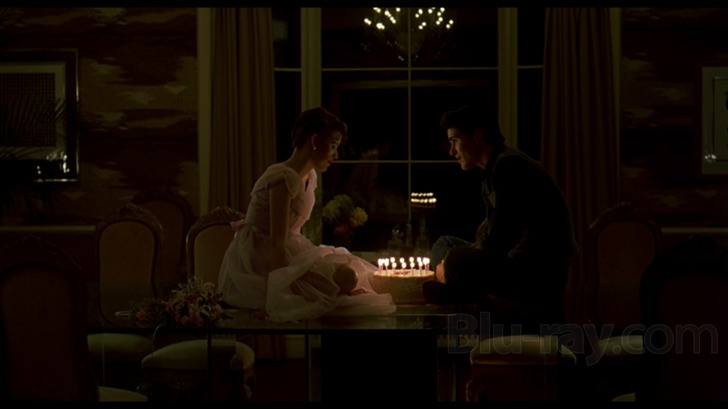
The 5.1 DTS-HD MA sound mix doesn't possess much home theater firepower, but its modest design fits the buoyant mood of the picture (and its original mix) quite nicely. Surround are rarely engaged in full, tasked to maintain distances and the occasional soundtrack flare-up, showing some life without a consistent presence. Music keeps to a frontal position, sounding full and crisp while managing a soundtrack of hits and era-specific tunes, swelling up when the moment requires. Low-end also shows some alertness with fuller instrumentation. I noticed a few quivery highs on a few of the cuts, but that could be a source issue. Dialogue is satisfactory and comfortably chaotic, with verbal exchanges always easy to understand, even when locked into a busy group dynamic. Atmospherics are stable and expressive without much in the way of movement. Already a thin sonic experience to begin with, the track manages to create excitement and clarity where it counts the most.
Sixteen Candles Blu-ray Movie, Special Features and Extras 
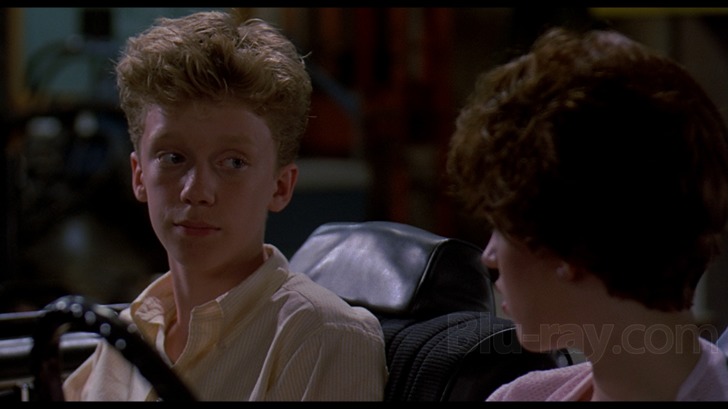
- "Celebrating 'Sixteen Candles'" (38:07, SD) is a 2008 retrospective on the making of the movie. Of course, Hughes himself doesn't show up to reflect on his directorial inauguration (about four publicity stills, recycled ad nauseum, are his only appearance), but what's shocking here is the absence of Ringwald, who's the ideal focal point when time comes to discuss this picture. Who do we get instead? Pleasant enough interviews with actors such as Watanabe, Hall, Haviland Morris, Paul Dooley, Blanche Baker, John Kapelos, and Justin Henry, who try their best to describe the magical Hughes touch. Overall, it's a trivial discussion of intent, music, and meaning from the cast, along with a special peanut gallery made up of movie journalists and filmmakers (including Michael Lehmann, Amy Heckerling, Marco Siega, and Diablo Cody). Their contributions to the discussion mostly consist of meaningless memories (with appropriate and cumbersome film clips to pad matters out), with Cody singled out as an individual who was clearly inspired by Hughes's work, but doesn't come across as someone who actually likes the movies. Her appearance here as the mandatory Tarantino figure tosses a wet blanket on the whole effort. Seriously, Universal couldn't nail down Ringwald for an interview? Schoeffling I get, but Ringwald? Why even bother without her?
- "100 Years of Universal: The '80s" (15:03, HD) discusses a most fertile period for the studio, who led the competition in "youth culture" pictures, including "Sixteen Candles," "Fast Times at Ridgemont High," and "Back to the Future." Talk of "The Blues Brothers," "Parenthood," and "Do the Right Thing" is also included. Interviews with the likes of Molly Ringwald, Judd Apatow, John Landis, and Meryl Streep are offered to provide insight and appreciation.
- "100 Years of Universal: Unforgettable Characters" (8:18, HD) cracks open the vaults to highlight a range of iconic creations the studio has originated over the years. Talk of the Universal Monsters, Norman Bates, John "Bluto" Blutarsky, E.T., and Jeff "The Dude" Lebowksi (oddly labeled here as a "hero") are included, along with discussions of "Jaws," "Back to the Future," and "Double Indemnity."
- A Theatrical Trailer has not been included.
Sixteen Candles Blu-ray Movie, Overall Score and Recommendation 
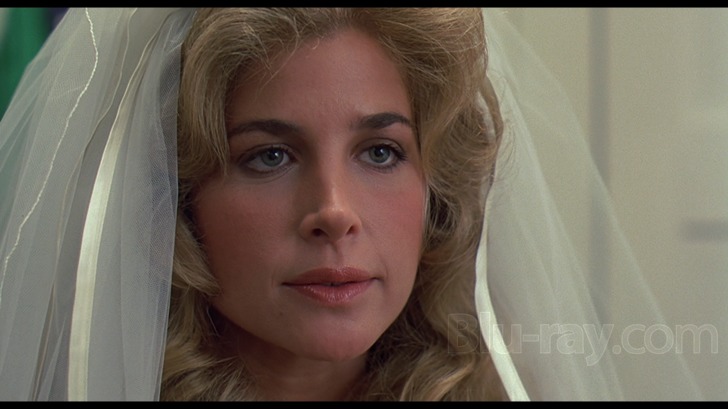
In "Sixteen Candles," John Hughes made the high school experience relevant again, resuscitating the horror of forced social functions such as the dreaded afternoon bus ride or evening dance. In 1984, it restored some dignity to teen cinema, bringing along needed playfulness. In 2012, the sensations still resonate, with renewed appreciation for the exceptional performances, a crackerjack soundtrack of '80s pop hits, and the universal concept of a teenager melting down on the most important day of her life.
Other editions
Sixteen Candles: Other Editions

Sixteen Candles
1980s Best of the Decade
1984

Sixteen Candles
Pop Art
1984

Sixteen Candles
Pop Art / with Pitch Perfect 3 Fandango Cash
1984

Sixteen Candles
1984

Sixteen Candles
35th Anniversary Limited Edition
1984

Sixteen Candles
Remastered
1984
Similar titles
Similar titles you might also like

The Breakfast Club 4K
1985

Mean Girls 4K
20th Anniversary Limited Edition Packaging
2004

Love, Simon
2018

Fast Times at Ridgemont High
1982

Pretty in Pink 4K
1986

Adventureland
2009

Glee: The Complete First Season
2009-2010

Easy A
2010

Say Anything...
20th Anniversary Edition
1989

She's All That
1999

Napoleon Dynamite
2004

Clueless 4K
30th Anniversary Edition
1995

Can't Buy Me Love
1987

Take Me Home Tonight
2011

10 Things I Hate About You
10th Anniversary Edition
1999

Grease 4K
40th Anniversary Edition
1978

The DUFF
2015

17 Again
2009

Paper Towns
My Paper Journey Edition
2015

Footloose
2011
